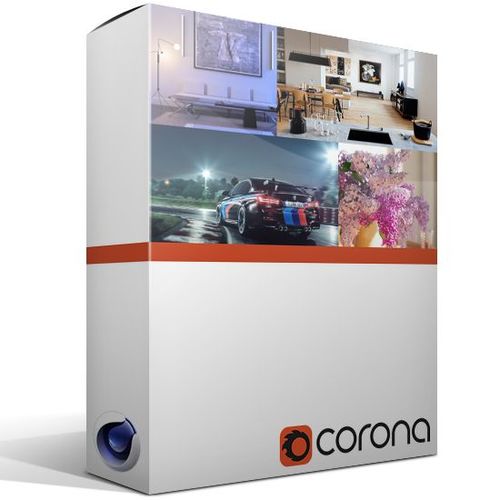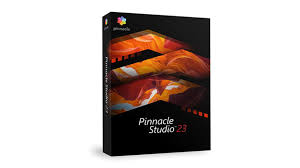Corona Renderer feature list
Render Engine
- Biased and Unbiased solution
- Path Tracing: unbiased solution
- UHD cache: faster biased cached solution for interiors
- Denoising
- Reduces the number of passes needed to get a noise–free image, with render time reductions of 50 to 70%
- NVIDIA AI GPU–based denoising can be used for final renders at the user’s discretion (requires a compatible NVIDIA GPU)
- Intel AI denoising can be used for final renders. CPU–only, and works with any CPU (not just Intel)
- Interactive amount adjustment
- Checkbox to enable/disable the result in the VFB
- Fast Caustics Solver
- Easy to use, fast to render
- Includes caustics from reflection, refraction, and dispersion (splitting light into separate colors)
- Enable or disable for specific light sources
- Works with LightMix
- Separate render element available for compositing caustics in post processing for even greater control
- Works correctly with Motion Blur
- Adaptive Image Sampling
- Balances out the rendering calculations over the image to focus more processing power on tricky areas
- High Quality Image filtering, gives a more natural and “less CGI” look to noise, making it less noticeable to the eye
- Progressive rendering
- Max Sample Intensity (MSI): automatically removes fireflies –
accuracy/render speed tradeoff
- Bidir/VCM: experimental unbiased engine with faster/more precise caustics
- Proudly CPU based
Interactive LightMix
- Adjust color and intensity of lights, during and after rendering
- Supports multiple suns for different times of day from one render
- Controlled from the VFB
- Results can be pushed to the scene
- Can be used for anything from subtle adjustments, to turning day into night, without re–rendering
- Each light select pass can be denoised independently (this can be enabled during automatic setup)
- LightMix result can be saved to a CXR file and then adjusted in the Corona Image Editor, or saved for compositing in other post–processing software
Post–processing effects
- Controlled from render settings, Corona Camera, VFB or Picture Viewer
- All settings are adjustable during/after rendering
- Image updated in real time
- Bloom & Glare
- Both controlled independently
- Threshold
- Color intensity & shift to adjust colors
- Glare ray count, blurriness and rotation
Exposure and Color mapping
- Controlled from render settings, Corona Camera, VFB or Picture Viewer
- All settings are adjustable during/after rendering
- Image updated in real time
- Two exposure control modes
- Photographic exposure: shutter speed + ISO + f–stop
- Simple exposure: single EV value
- Additional settings
- Contrast
- Highlight compression
- Filmic Highlights
- Filmic Shadows
- Color tint
- Saturation
- White balance
- Green–magenta tint
- LUT with opacity adjustment
- Custom curves for overall brightness, and individual RGB
- Sharpening/Blurring (both can be used at the same time, to reduce “pixel perfect” noise)
Corona Image Editor
- Runs outside of any 3D software
- All the familiar controls from the Corona VFB
- Adjust lighting in the renderer image using the full range of LightMix controls (on Corona EXRs)
- Apply Denoising (on Corona EXRs)
- Apply all the Corona post–processing options (on any EXR)
- Save and load LightMix and post–processing configurations, and exchange those to and from the Corona VFB
- Bloom & Glare virtual element which can be viewed or saved separately
- Save up to eleven formats (EXR, PNG, JPG, BMP …)
Lights
- Corona Sun
- Standalone object that can be combined with Cinema 4D Sky Object & Corona Sky tag for complete realistic outdoor lighting
- Uses state of the art Hošek & Wilkie model of emission
- Allows non–physical properties (changing size, color, disabling visibility in reflections, …)
- Corona Sky
- Tag that can be applied onto Cinema 4D Sky Object for procedural sky light emission
- Can be combined with Corona Sun for complete realistic outdoor lighting
- Uses state of the art Hošek & Wilkie model of emission
- Allows changing ground color and turbidity
- Corona Light
- Shapes: sphere, rectangle, disk, cylinder, cube
- IES profiles
- Directionality
- Physical units
- Color (RGB input, Kelvin temperature)
- Non–physical settings: includes/excludes, disabling visibility in reflections, preventing black appearance for lights with directionality
- Corona Light Material
- Turns any object into a light
- No render time differences compared to using a Corona Light
- Cinema 4D native lights
Environment
- Drag and drop Corona Light Material with any shader or an environment map onto the Cinema 4D Sky Object or into the Scene environment slot in the Scene environment tab in Render Settings
- Importance sampling speeds up rendering
- Direct/Reflect/Refract overrides in Render Settings
- Global volume material (for volumetric effects – fog)
Corona Node Material Editor
- Global/World view of shaders and materials and how they are connected
- Use views to organize materials and shaders by type, category, etc.
- Handles all Corona and most Cinema 4D shaders and materials; also works with Substance shaders
- Connect one shader to any number of channels, or materials
- Works with native Cinema 4D Layer shader
- Switch at any time between the Corona Node Material Editor, or the native Cinema 4D editor
- Select by selection box
- CTRL + Drag to copy selected nodes
- Indepedent of Cinema 4D version – works in all versions of Cinema 4D supported by Corona Renderer (R14-R20)
Materials
- Corona Material
- Diffuse, translucency, reflection, refraction, glossiness, opacity
- GGX BRDF with full glossiness range
- Compatible with native Cinema 4D shaders
- Dispersion for glass, gemstones, etc.
- Adaptive displacement, with low memory requirements
- Bump mapping
- SSS mode for wax, marble and other materials that do not use Refraction or Translucency
- Volumetric scattering and absorption mode for fog, mist, and for colored glass, liquids and other materials that use Refraction or Translucency
- Self–illumination
- Fresnel reflections, anisotropic reflections
- Corona Skin Material
- Dedicated material for skin
- Three independent Subsurface Scattering layers
- Two independent Reflection layers
- Corona Hair Material
- Dedicated material for hair and fur
- Colored and Colorless reflection layers
- Color controls via melanin amounts, or directly
- Adjustable random glints
- Usable alone or in combination with Cinema 4D Hair Material for Cinema 4D’s native control over the hair growth properties
- Corona Layered Material
- Alternative to Cinema 4D Texture Tags layering
- Combines multiple materials instead of just two
- Corona Portal Material
- Optional
- Accelerates lighting in interiors with small windows
- Corona Light Material
- Identical performance to Corona Light
- Various non–physical settings
- Textured emission (useful for backplates)
- Corona Ray Switcher Material
- Uses different materials for different ray types: direct, GI, reflections, refractions
- Corona Shadow Catcher Material
- Use custom backplate texture or show the environment map behid
- Supports glossy surfaces
- Bump mapping
- Corona Volume Material
- Simplified material for volumetric scattering and absorption
- “Inside mode” allows for true 3D volumetric materials
- Cinema 4D Materials
- Cinema 4D Material
- Cinema 4D PBR Material
Geometry
- Corona Proxy
- Cross–platform proxy format: .cgeo
- Faster save/load/display of large scenes
- Compressed format to save disk space
- Supports animated meshes
Interactive rendering
- 100% the same render engine as for the final frame
- All final frame rendering features supported, including Interactive LightMix, post–production effects such as bloom & glare, LUTs, etc.
- NVIDIA AI GPU–based denoising, for denoising during Interactive Rendering (requires a compatible NVIDIA GPU)
- Pick objects directly in the docked viewport, and use the standard Cinema 4D transform widgets on them
- Image upscaling factor to allow rendering to a smaller resolution and upscaling (ideal for HighDPI displays)
- While zooming–in in the IR, rendering is focused on visible area only
- Subsampling lowers initial resolution at the beginning of rendering, for virtually real–time performance
- Results shown in Corona VFB or docked viewport
Corona Virtual Frame Buffer
- An optional, feature–rich replacement of the Cinema 4D Picture Viewer
- Integrated Interactive LightMix, allows changing color and intensity of lights without re–rendering
- Integrated post–production effects, including bloom & glare, vignette, sharpening/blurring, histogram, curves, etc.
- Integrated color mapping controls, including exposure, filmic tone mapping, LUTs, etc.
- Pick objects directly in the VFB
- Set DOF focus point directly in the VFB (for Corona Cameras)
- VFB History and Comparison, with the ability to toggle between using the current post–processing, or the post–processing used at the time of saving the image to history
- Statistics: render time, remaining time, performance, polycount, tooltip explanations …
- Displaying/saving Multi–Pass layers
- Pixel color probe on right mouse button
- Controls: start render/stop render, resume last render, resume rendering from file, save/clone/copy image, …
- Optional stamp with scene info at the bottom of rendered image
- Customizable information in the title bar
- Interactive and Multiple Render Regions
- Fuzzy render regions
- Zoom buttons for use when accessing a machine remotely
Distributed rendering
- Support for Cinema 4D Team Render of both animations and single frame
- Pass, Time and Noise Level limits can be used
Camera Effects
- High quality (raytraced) depth of field and motion blur effects
- Photographic controls (optional): shutter speed + ISO + f–stop
- Fisheye lens effects
- Bokeh shape
- Circular
- N–gonal (bladed aperture)
- Custom image
- Center Bias
- Vignetting
- Anisotropy
- Multi–segment (curved) motion blur
- Virtual Reality Camera
Corona Camera
- Corona Camera is a tag allowing to use all the standard Cinema 4D camera controls plus all Corona controls such as exposure, DOF, LUTs etc.
- Focus distance can be set using the native Cinema 4D Focus Object functionality
- Tone mapping parameters respond immediately in Interactive Rendering without restarts
- Render to fisheye, orthographic, perspective, spherical, cylindrical or cubemap projections
Multi–Pass
- Arbitrary number of passes
- Optional anti–aliasing of passes
- Optional Denoising of passes (where relevant)
- Beauty pass, with independent Denoise amount
- Alpha pass
- Beauty composition passes
- Direct, indirect, reflect, refract, translucency, emission, caustics
- Geometry passes
- Geometry normals, shading normals, primitive coordinates, UVW coordinates, world position, z–depth
- Masking passes
- Wire color
- Primitive/Material/Object ID
- Custom mask
- Object selection
- Material ID
- Object buffer ID
- Shading passes
- Albedo, individual direct/indirect BRDF components, raw components, source colors, shadows
- Arbitrary texmap elements
- Corona AO shader
- Corona Wire shader
VR
- Corona Camera can render to spherical or cubemap format, supporting a wide range of VR apps
- Easy set up, with default settings handling 99% of cases
- Conventional stereo rendering (non–360)
- Bloom & Glare supported for spherical VR images
Shaders
- Corona AO
- Ambient occlusion shader
- Supports textures
- Includes/Excludes
- Additional controls: spread, directionality, inverted mode, etc.
- Cinema 4D Normal Direction
- This supported native Cinema 4D shader fully replaces the CoronaFrontBack texmap from the 3ds Max version
- Corona Color Correct
- Adjust brightness, saturation, etc. of a shader (and still have it affected by VFB post–processing)
- Tone mapping using LUT files
- Cinema 4D Filter Shader is supported and can be used as an equivalent for other tone mapping capabilities such as gamma, curves, etc.
- Corona Tonemap Control
- Specify whether a shader should be affected by VFB Exposure, Tone Mapping, etc.
- Corona Color Mix
- Adds the Cinema 4D native color mixing settings to the shaders which normally don’t have them
- Corona Ray Switch
- Same as RaySwitch material, but on shader instead of material level
- Cinema 4D Color
- This supported native Cinema 4D shader fully replaces the 3ds Max version’s CoronaColor texmap
- Corona Wire
- Wire shader
- Allows to set edge/vertex size in world or screen coordinates
- Can be used as an input to bump mapping
- Corona Bitmap
- UV Tiling, Crop / Placement, Channel outputs
- Corona RoundEdges
- Rounded corners shader
- Works as an input to bump mapping and other material slots
- Cinema 4D Variation
- This supported native Cinema 4D shader fully replaces the CoronaMultiMap known from the 3ds Max version
- Corona Triplanar
- Apply shaders without explicit UV mapping, with no stretching or seams thanks to the in–built blending
- Corona Normal
- Automatic correction of incorrect input gamma
- Corona UVW Randomizer
- Apply random offset / rotation / scale to shaders by instance, material id, etc.
Misc
- Material and light conversion
- Cinema 4D lights and basic materials are rendered out–of–the–box using implicit conversion inside Corona without user interaction
- Basic implicit support for V–Ray Advanced, Standard, Displacement and 2–Sided materials
- Basic implicit support for V–Ray Physical Sun + Sky light and Area lights
- Other V–Ray lights which use Cinema 4D objects as their base are rendered using the Cinema 4D light’s properties
- Explicit user–initiated conversion, which converts the supported Cinema 4D materials, V–Ray lights and V–Ray materials to their Corona counterparts to allow further tweaking and changes in Corona
- Hair support
- Cinema 4D native Hair Object
- Cinema 4D native Hair Material in the Cinema 4D Hair Tag
- Corona Hair Material can be used in addition to Cinema 4D Hair Material for realistic hair appearance
- Advanced “Render Selected”
- Render mask by an include/exclude list or viewport selection
- Improved material editor scene
- More representative previews
- Stacked materials work as expected with displacement
- Override material option (with excludes/includes, and option to preserve displacement)
- Save and resume
- Ability to save VFB and resume rendering later (even on a different computer)
- Render only masks
- Computes render masks in seconds without doing shading
- Autosave
- Optionally saving the VFB every few minutes and after rendering. Rendering can be resumed from these backups
- Bundled LUTs
- Over 70 LUTs included with the install
- Bundled IES profiles
- Sample IES files included
- UI supports HiDPI monitors
Supported Cinema 4D features
- Most native and 3rd party shaders
- Evaluated directly from the Corona rendering pipeline
- Including the Cinema 4D shaders Beat, Bitmap, Brick, Checkerboard, Cloud, Color, Color(MoGraph), Colorizer, Cyclone, Display Color, Distorter, Earth, Falloff, Filter, Fire, Flame, Formula, Fresnel, Fusion, Galaxy, Gradient, Layer, Lens Distortion, Marble, Metal, Multi, Noise, Normal Direction, Pavement, Pixel, Planet, Polygon Hair, Posterizer, Projector, Proximal, Ripple, Rust, Simple Noise, Simple Turbolence, Spline, Starfield, Stars, Substance Shader, Sunburst, Thin Film, Tiles, Variation, Venus, Vertex Map, Water, Weathering, Wood
- Cinema 4D native material layering
- Cinema 4D native lights
- Including turning off shadows or non–physical falloff properties
- Cinema 4D render options
- Render region, viewport render region, interactive render region, render view
- Native Team Render support
- Render takes
- XRef object in non–generator mode
-
5 Stars
-
4 Stars
-
3 Stars
-
2 Stars
-
1 Stars
Average Star Rating: 0.0 out of 5
(0 vote)
If you finish the payment today, your order will arrive within the estimated delivery time.






Reviews
There are no reviews yet.